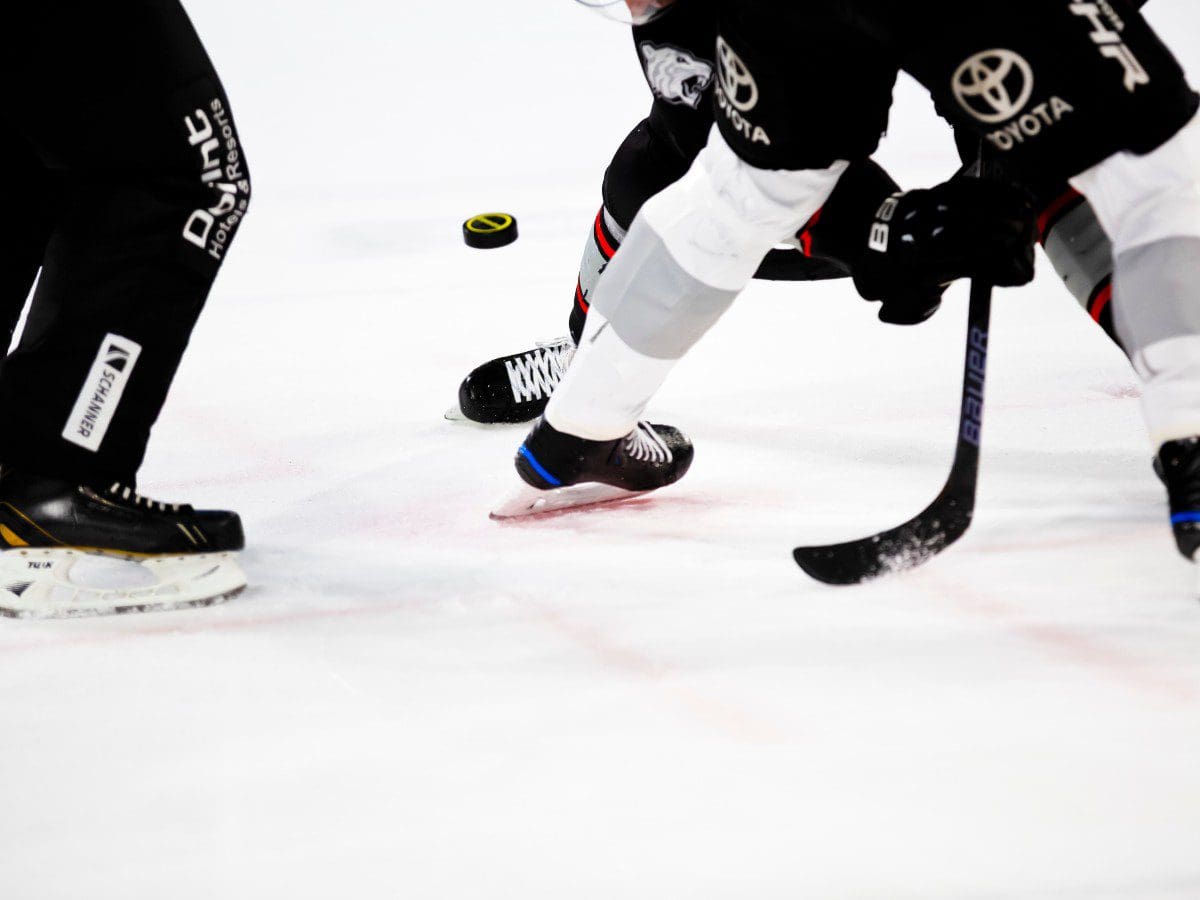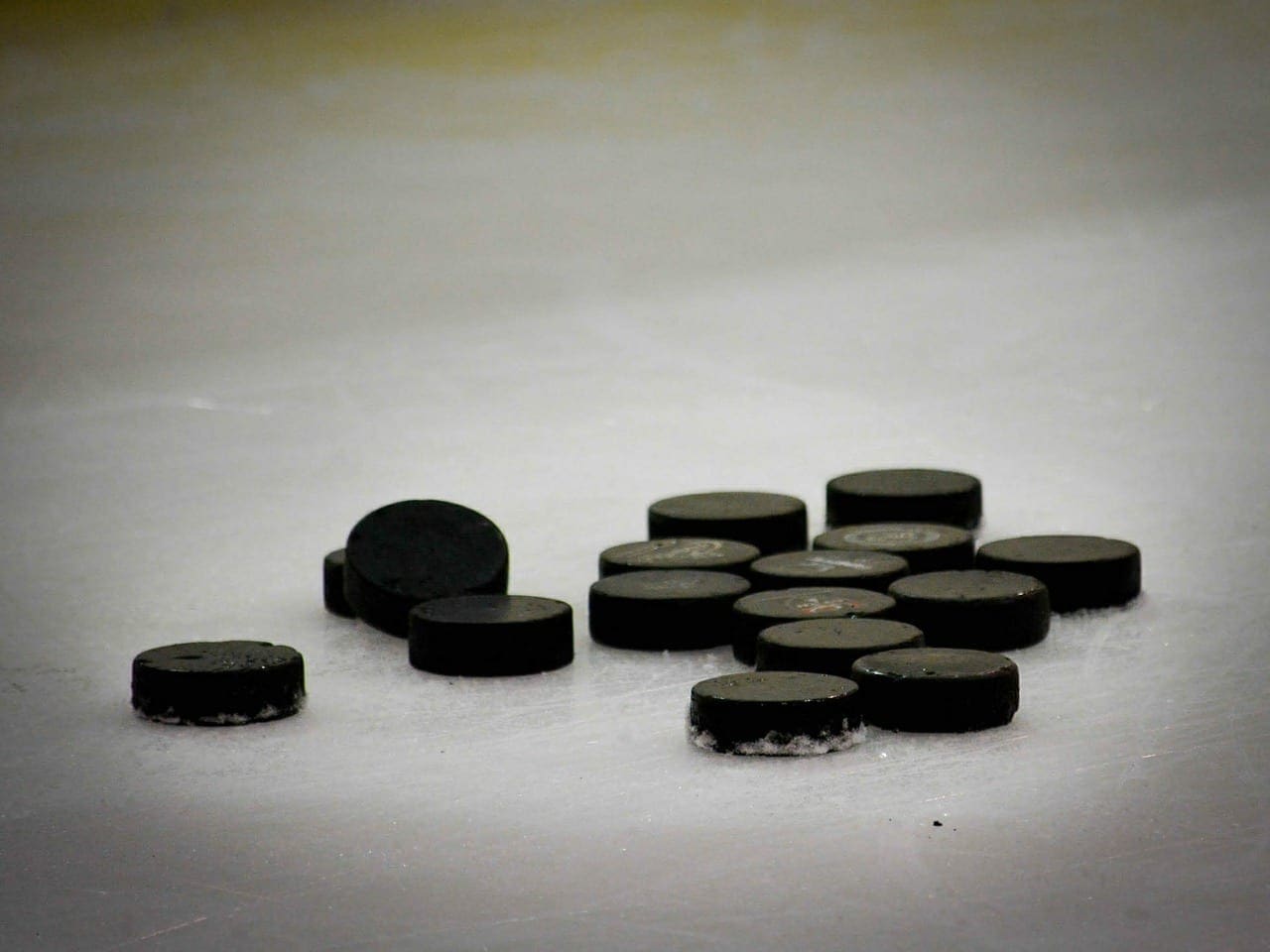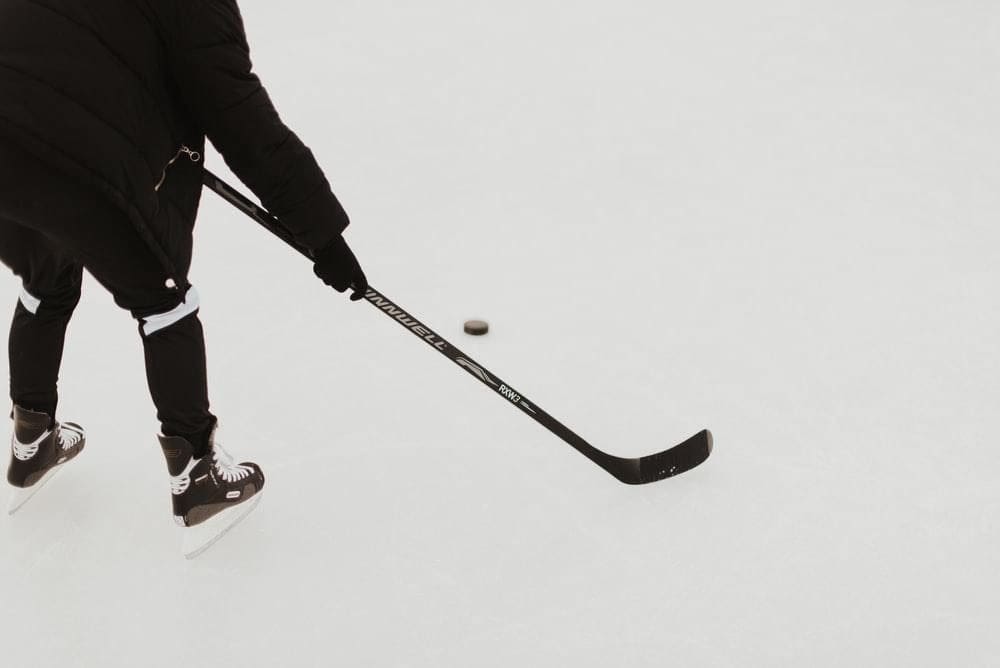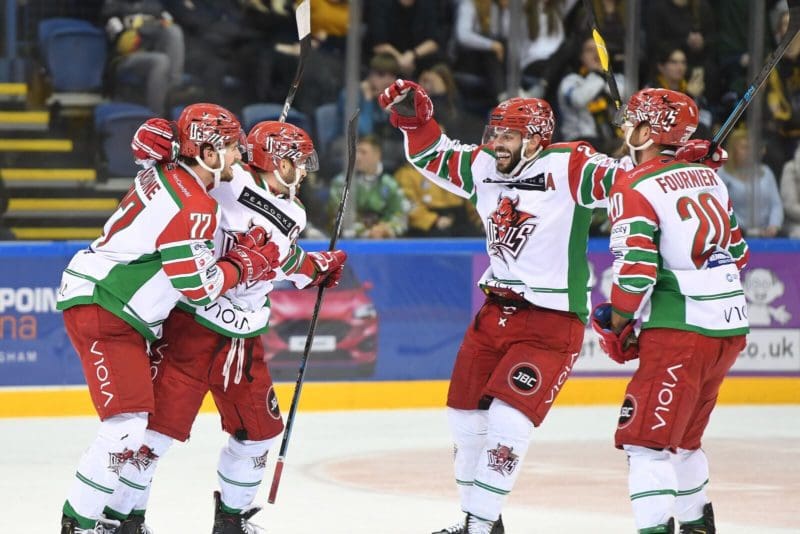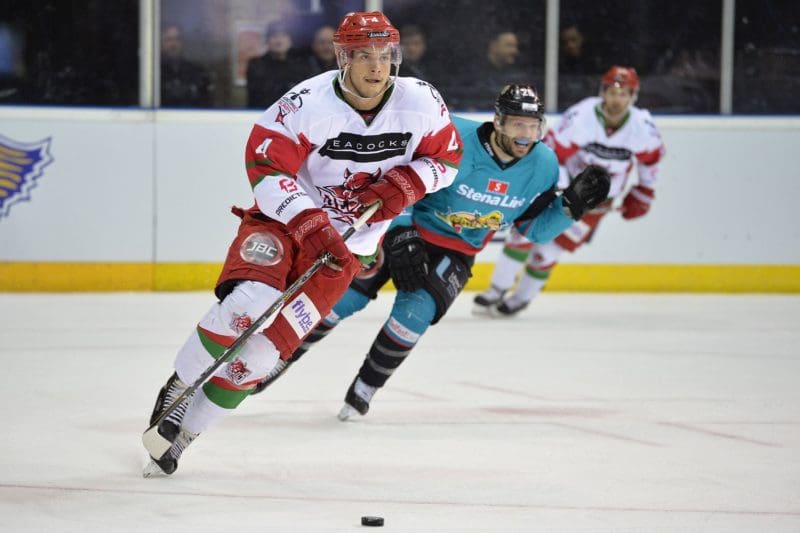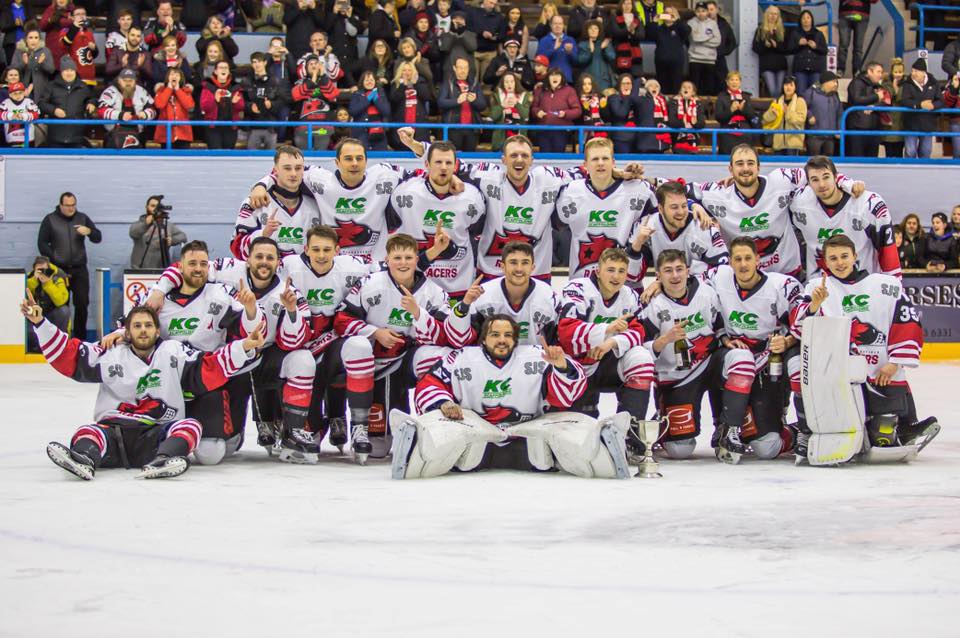Former Bracknell Bees owner Ben Beeching shares his experiences of running the club and gives some additional insight into how events unfolded.
This first instalment looks at the process of bidding for the license, familiarising himself with the fabric of the club and getting things prepared ready for the 2013/14 season:
The ridiculously complicated Brexit negotiations have brought back many memories from late 2012 and early 2013 with the protracted process we endured for getting the license to run the Bracknell Bees.
Despite perceptions and misinformation in some quarters to the contrary, I took on the Bees project not motivated by ego or financial gain but because I love ice hockey.
I started playing in Bracknell, and the Bees were my local team to which my dad and I used to have a season ticket for many years.
My motivation in wanting to take on the club was to re-energise it – lift it out of the lethargic state I felt it had fallen into at the wrong end of the league and with a general lack of energy to it, and make it something the town could be proud of again.
Even given the benefit of hindsight, I have no regrets about taking the club on. I’m not going to dwell on mistakes or give myself too hard a time, especially now I’ve had time to retrospectively consider what a tough challenge it was from the state we found the club in, to the behaviour of some individuals.
During the winter of 2012 and early 2013, I received information from the Nike Group that the incumbent operating license holders – Bees Ice Management (BIM) – had made it clear they were relinquishing the running of the club.
The Nike Group also informed me that at the time of them receiving this news no other parties had expressed any interest in taking on the license, and that BIM had taken the decision they would relinquish prior to any knowledge there would be another party bidding to run the license.
In other words, there was nobody except my group in the frame to run the Bees after the end of the 2012/13 season.
Going back over nearly 200,000 pieces of correspondence now archived under the Bees folder in my email inbox, I’m reminded that the whole process began in December 2012 with early dialogue between myself and then Nike Group director Martin Weddell.
At the time I was highly immersed in the detail of putting the management company and its operating plan together, but in retrospect it was a very odd period of time.
Martin, a decent guy, was very much caught in the middle between us wanting to get the license agreement locked in by February/March time so as to be able to begin recruiting players, sponsors and getting everything going, and the Nike Group hierarchy and their desire to slow the pace down.
In parallel to the Nike Group, I also met Ken Taggart in the early stages of the process. Ken, despite consistent grumblings to the contrary on hockey forums and social media, takes a pretty proactive interest in new ownership groups of teams and is a good guy who is always available to help and consult club owners whatever the time of day.
Because he’s not personally active on the PR front he’s an easy target to be shot at, but I’d be willing to bet that not many of those keyboard warriors would do so to his face.
By the same token, I’m not saying the EIHA is a perfect organisation by any means (more on those subjects later!).
Anyway, Ken joined me for dinner one evening and we discussed all things hockey, our business plan and the characters that make up the league which I found to be an extremely useful exercise.
We also chose the name Precision Sports Marketing (PSM) as we felt this would add a polish to the product as a means of attracting additional sponsors that, unlike most of those that were already in place, simply happened to be supporters who ran their own businesses.
We found early vindication for this strategy with the likes of Computacenter, Krome Technologies and Blues Smokehouse choosing to partner their brands with a proper organisation, rather than rejecting the overtures of what they’d previously viewed as a fan-led amateur sports club.
While all this work was going on behind the scenes, and despite our interest being well known to the incumbent Bees owners, I was not offered so much as a courtesy ticket to a game, or even a visit up to the hospitality suite to meet the sponsors and get a feel for that side of things.
I didn’t think much of it at the time and I was more than happy as always to pay my way to get into games, but in hindsight I should not have been surprised at all given that there seemed to be an agenda to do as much as possible to get us off to as bad a start as possible for whatever reason.
I was also hearing rumours at the time of the owners wanting at all costs to avoid sixth place and a play-off match-up with third-placed Manchester Phoenix, which would mean lower home gate revenue and higher travel costs.
April came and went, and there was still no sign of a first meeting with Mr Nike, although Martin was doing a decent job of keeping us interested.
Well, that and my pure determination to keep going despite being treated pretty disrespectfully in all honesty – although I should say that I fully respect the fact that if I was on the other side of the negotiating table I would have handled things in exactly the same way.
We ended up meeting Mr Nike for the first time on the 22nd June, 2013. I enjoyed every minute of it, and for one of the few if not only times in my professional career I was excited about a meeting.
I’ve had experience in presenting to rooms packed full of over 200 senior business executives in several different countries across the world, but I don’t mind admitting I was genuinely nervous about my first meeting with the gentleman whose rink I’d been visiting since I was eight-years-old to play and watch hockey.
Off the back of this a draft agreement was presented to us with, amongst other concerns, a rise in ice hire prices from the ones that the previous ownership group had benefitted from.
Negotiations went back and forth on this across July and August, alongside the many other preparations that needed to be carried out.
We also put together a launch event that I was really proud of, with well over 200 fans packed into the rink restaurant on a bright summer’s day and a real buzz of optimism around the place.
In the background, if I hadn’t known already, it became clear that we had taken on a full-scale top-to-bottom job – the shell of a club was there, but behind the scenes everything from jersey designs to merchandising to the ticket pricing and promotions structure were in drastic need of the new energy and drive that we were working hard to bring to the table.
Alongside this I was also having to come to terms with the sideshow of a long line of odd interpretations of people claiming to want to “help out” – while there were some absolute stars who were 100 percent genuine, other offers were far more dubious and their self-interest clearly visible.
More on those later, but suffice to say at this early stage it was already becoming clear to me who could be trusted.
The need to make this distinction was also amplified by the fact that by this point we had built up liabilities of over £50,000 on hockey equipment purchases, housing rental agreements, merchandise, player registrations, flights and ITC cards for imports to name just a few of the many expenses – all this was without a formal contract in place with JNL.
We had, in an unnecessarily difficult environment, committed to the project for the long-haul, and with significant financial skin in the game.
Some would rightly ask why? At some of the darker moments myself and my fellow directors did just that.
But the simple fact was that if we had not been willing to absorb this risk, then there would have been no Bees in 2013/14 as there would not have been sufficient time to prepare had we sat on our hands and waited for the contract.
We ended up signing the contract on Thursday, 5th September, 2013, two days prior to the first scheduled pre-season game.
In my next article I’ll get to the first puck drop and some of the highs and lows of the first half of that season.

